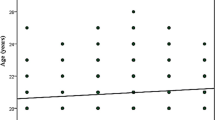Abstract
The use of dietary supplements (DS) is increasing worldwide, however, there are limited studies examining the characteristics of people who take supplements in the United Arab Emirates. To examine the use of DS and their association with sociodemographic/lifestyle factors among college students in the UAE. A cross-sectional study conducted on 452 (18 to 24 years) college students (247 females and 205 males). A self-administered questionnaire that included sociodemographic and lifestyle characteristics, DS use, attitudes, and behavior was used. The prevalence of DS users was 35.6%. Dietary supplement use was significantly more among males than females (P = 0.008). The males preferred protein supplements (29.4%), while females consumed multivitamin and mineral supplements. Dietary supplement use was related to physical activity and the existence of a health problem. Males took DS for medical needs and to increase their muscle mass while females took them for medical needs (P = 0.001). While there a was significant difference between DS users and non-users related to knowledge (P = 0.000). The majority of DS users agreed that supplements are essential for health (68.3%) and only 39.8% agreed it was safe to use. Dietary supplement users source of information was health care providers (30.5%) followed by social media (22.2%). The prevalence of supplement use among college students was moderate among college students in the UAE. The results draw the attention for increasing public awareness about the DS appropriate use and safety from reliable sources so they could make more informed choices.

Similar content being viewed by others
References
Gahche, J., Bailey, R., Burt, V., Hughes, J., Yetley, E., Dwyer, J., & Sempos, C. (1988). NCHS Data brief, Number 61, April 2011. Retrieved from https://www.cdc.gov/nchs/data/databriefs/db61.pdf.
Rovira, M. A., Grau, M., Castañer, O., Covas, M. I., & Schröder, H. (2013). Dietary supplement use and health-related behaviors in a mediterranean population. Journal of Nutrition Education and Behavior, 45(5), 386–391. https://doi.org/10.1016/j.jneb.2012.03.007.
El Khoury, G., Ramadan, W., & Zeeni, N. (2016). Herbal products and DS: A cross-sectional survey of use, attitudes, and knowledge among the lebanese population. Journal of Community Health, 41(3), 566–573. https://doi.org/10.1007/s10900-015-0131-0.
Awad, A., & Al-Shaye, D. (2014). Public awareness, patterns of use and attitudes toward natural health products in Kuwait: A cross-sectional survey. BMC Complementary and Alternative Medicine, 14, 105. https://doi.org/10.1186/1472-6882-14-105.
Alhomoud, F. K., Basil, M., & Bondarev, A. (2016). Knowledge, attitudes and practices (KAP) relating to DS among health sciences and non-health sciences students in one of the universities of United Arab Emirates (UAE). Journal of Clinical and Diagnostic Research, 10(9), JC05. https://doi.org/10.7860/JCDR/2016/19300.8439.
Mahan, K. L., & Raymond, J. L. (2017). Krause’s food & the nutrition care process (14th ed., Chap. 12, p. 195). Elsevier.
National Institutes of Health. (2015). Office of dietary supplements: Multivitamin/mineral supplements fact sheet for healthcare professionals. Retrieved May 19, 2018 from http://ods.od.nih.gov/factsheets/MVMS-HealthProfessional/.
Kobayashi, E., Sato, Y., Umegaki, K., & Chiba, T. (2017). The prevalence of dietary supplement use among college students: A nationwide survey in Japan. Nutrients, 9(11), 1250. https://doi.org/10.3390/nu9111250.
Alfawaz, H., Khan, N., Alfaifi, A., Shahrani, F. M., Al Tameem, H. M., Al Otaibi, S. F., et al. (2017). Prevalence of dietary supplement use and associated factors among female college students in Saudi Arabia. BMC Women’s Health, 17(1), 116. https://doi.org/10.1186/s12905-017-0475-y.
Hildur Ósk Gunnlaugsdóttir. (2016). Supplement use and attitudes towards supplementation with vitamins, minerals and protein powder among a Facebook community and university students B.Sc. in psychology.
Lieberman, H. R., Marriott, B. P., Williams, C., Judelson, D. A., Glickman, E. L., Geiselman, P. J., et al. (2015). Patterns of dietary supplement use among college students. Clinical Nutrition, 34(5), 976–985. https://doi.org/10.1016/j.clnu.2014.10.010.
Chatham-Stephens, K., Taylor, E., Chang, A., Peterson, A., Daniel, J., Martin, C., et al. (2017). Hepatotoxicity associated with weight loss or sports DS, including oxyelite pro-United States, 2013. Drug Testing and Analysis, 9, 68–74.
Harrison, R. A., Holt, D., Pattison, D. J., & Elton, P. J. (2004). Who and how many people are taking herbal supplements? A survey of 21 923 Adults. International Journal for Vitamin and Nutrition Research, 74(3), 183–186. https://doi.org/10.1079/BJN20031076.
Guo, X., Willows, N., Kuhle, S., Jhangri, G., & Veugelers, P. J. (2009). Use of vitamin and mineral supplements among Canadian adults. Canadian Journal of Public Health, 100(5), 357–360. https://doi.org/10.2307/41995292.
Author information
Authors and Affiliations
Contributions
HR, HAH, LG, GA, AS, AA, FA contributed to conception and design, acquisition of data. HAH was involved in analyzing and interpreting the data. LG, GA, AS, drafted the manuscript. HR and HAH have been involved in revising it critically for important intellectual content. HR gave final approval of the version to be published. Each author has participated sufficiently in the work to take public responsibility for appropriate portions of the content; and agree to be accountable for all aspects of the work in ensuring that questions related to the accuracy or integrity of any part of the work are appropriately investigated and resolved.
Corresponding author
Ethics declarations
Conflict of interest
The authors declare that they have no conflict of interest.
Additional information
Publisher's Note
Springer Nature remains neutral with regard to jurisdictional claims in published maps and institutional affiliations.
Rights and permissions
About this article
Cite this article
Radwan, H., Hasan, H.A., Ghanem, L. et al. Prevalence of Dietary Supplement Use and Associated Factors Among College Students in the United Arab Emirates. J Community Health 44, 1135–1140 (2019). https://doi.org/10.1007/s10900-019-00700-2
Published:
Issue Date:
DOI: https://doi.org/10.1007/s10900-019-00700-2




